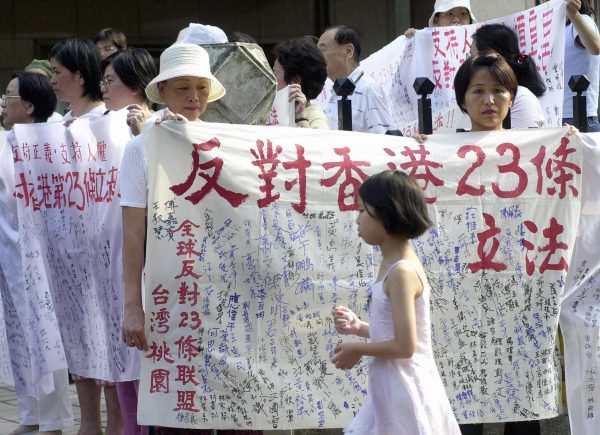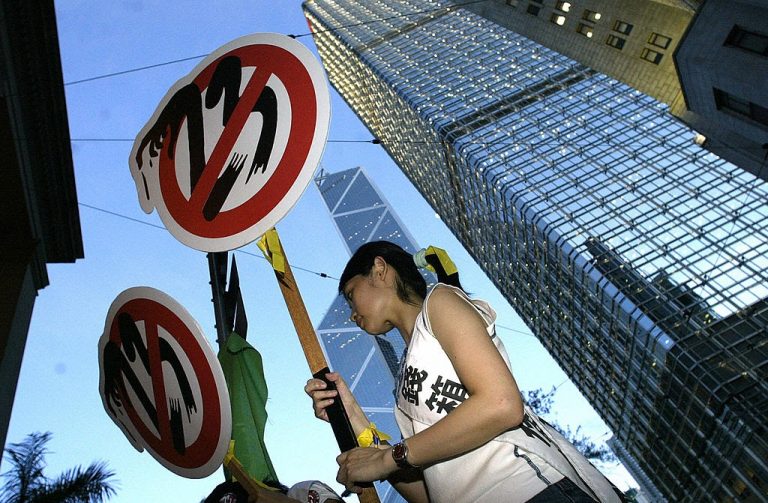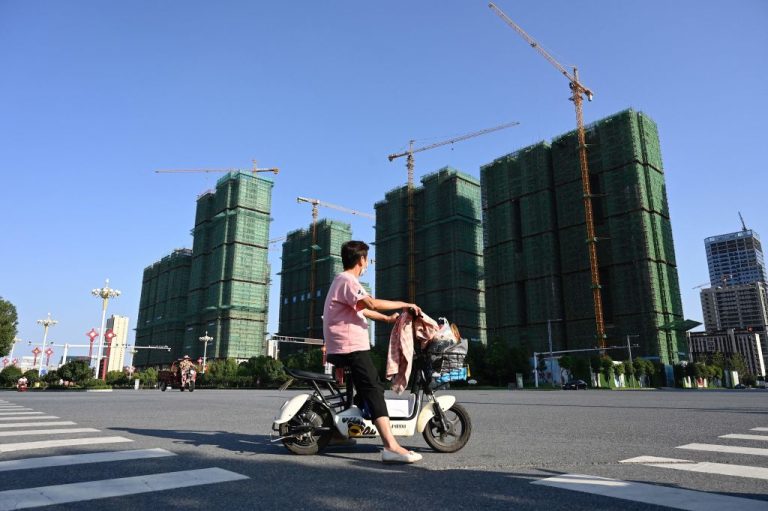Three months shy of four years after Communist China imposed its repressive National Security Law (NSL) on Hong Kong, the financial hub and port city has passed additional legislation, titled “Safeguarding National Security Ordinance” and known for decades as simply “Article 23.”
The vaguely worded Ordinance, passed on March 19 (Tuesday), derives its popular name from the 23rd article of Hong Kong’s mini-constitution, the Basic Law, which stipulates that the former British colony must pass legislation to protect “national security.”
The UK handed sovereignty of Hong Kong over to the People’s Republic of China (PRC) in 1997, after an agreement in 1984 that saw Beijing guarantee special civil and economic rights for the southern metropolis at least until 2047 — the so-called “one country, two systems.”
In 2003, the Chinese Communist Party (CCP) under then-General Secretary Jiang Zemin attempted to enact Article 23, but a massive protest by more than half a million Hongkongers put a halt to those designs.

Observers believe that the CCP’s attempt to pass the bill at that time was in large part motivated by Jiang’s desire to spread the persecution of the Chinese spiritual practice Falun Gong to Hong Kong.
- Families of Targeted Hong Kong Activists Questioned by Authorities
- Thugs Who Attacked Falun Gong Practitioners in Hong Kong Sentenced for Property Damage
Success
You are now signed up for our newsletter
Success
Check your email to complete sign up
In 2019, millions of Hongkongers took part in sustained protests calling for greater democratic freedoms and to protect their city’s autonomy. A combination of police brutality and the onset of the novel coronavirus pandemic thinned out the protests going into 2020, and that June 30, the NSL was passed to significant international condemnation.
Speaking with Japan’s Nikkei Asia, exiled Chinese political dissident Hu Ping said that the passage of Article 23 was essentially redundant because supposed to threats to “national security” — that is, speech and activity the Communist Party disapproves of — “have already been eradicated” under the auspices of the NSL.
From Beijing’s perspective, “there is really no need” for new national security legislation, he said.
According to SinoInsider, a New York-based risk consultancy that tracks developments in CCP elite politics, the passage of Article 23 despite the existence of the NSL could be a means for current Chinese leader Xi Jinping to further bring Hong Kong under his personal influence, rather than that of his rivals in the communist regime.
A “possible reason why Article 23 is being accelerated at this time is because Xi Jinping believes that he faces heightened political risks from both domestic and foreign enemies, and wants to be able to bring things under control in Hong Kong if the situation calls for it,” SinoInsider wrote in a newsletter analysis published March 14.













